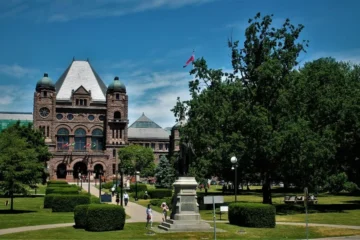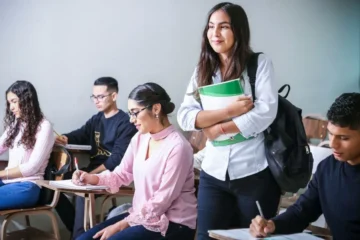If you’ve ever dreamed of spending a month in Germany surrounded by centuries of wit, ink, and artistic rebellion, the Museum Wilhelm Busch Fellowship might be your perfect excuse. Tucked away in Hanover, this fellowship isn’t your run-of-the-mill academic sabbatical—it’s an invitation to dive headfirst into one of Europe’s richest collections of caricature and satire.
Key Takeaways
What Is the Museum Wilhelm Busch Fellowship All About?
The museum itself serves as a cultural time capsule, home to historic cartoons, illustrations, and political satire dating as far back as the 17th century. And, of course, it celebrates the legacy of Wilhelm Busch, often called the godfather of German comic art. The fellowship reflects this mission, offering creatives and scholars a focused, well-supported platform to explore themes of visual satire, humorous commentary, and socio-political storytelling through art.
Who Can Apply for the 2025 Fellowship in Germany?
This opportunity isn’t just for tweed-jacketed professors or brooding artists locked away in studios. The Museum Wilhelm Busch Fellowship actively encourages applications from a diverse range of people: academics, independent researchers, visual artists, cartoonists, illustrators, and satirists. The key requirement? You must be actively working on a project that connects in some meaningful way to the museum’s holdings or themes—namely, satire, caricature, and visual commentary.
There’s a bit of flexibility in terms of background. You don’t necessarily need to be affiliated with a university (though academic applicants will need a reference). What matters is the strength of your project idea, your commitment to engaging with the museum’s resources, and your ability to bring something original to the conversation around satire and visual art.
What Support and Benefits Are Offered?
The fellowship comes with more than just bragging rights. For starters, selected fellows are invited to spend four weeks in Hanover, ideally between September and mid-December 2025. You’ll be given a workspace within the museum—a pretty inspiring spot to sketch, write, or research right next to 400 years of mischievous masterpieces.
On the financial front, the program offers up to €1,500 in travel support, depending on your country of origin. You’ll also receive a €1,500 stipend to cover daily living expenses like meals, local transportation, and the occasional coffee-fueled brainstorming session. And yes, accommodation is included, so you can focus fully on your work rather than worrying about Airbnb or sublets.
What Kind of Projects Are Expected?
This isn’t a plug-and-play residency—you’re expected to bring your own creative or scholarly vision to the table. The best applications propose projects that not only tap into the museum’s extensive collection but also offer fresh interpretations or original artistic commentary.
Also Read: What Is Germany’s Opportunity Card and How Can You Apply?
For example, you might research the evolution of political satire in Europe, craft a comic series inspired by Wilhelm Busch’s visual style, or analyze how 19th-century caricatures mirror today’s meme culture. The museum is particularly interested in proposals that connect past and present, and that showcase an inventive approach to satire, humor, or criticism. Whether you’re crafting a scholarly article or designing an exhibition concept, your work should engage with visual satire in a way that sparks conversation.
How Does the Application Process Work?
To get started, you’ll need to pull together a thoughtful and well-structured project proposal outlining your goals, methods, and relevance to the museum’s collection. Be specific—explain how the museum’s archives or holdings will inform your work, and what you plan to produce by the end of the fellowship.
You’ll also need a CV, ideally highlighting previous work related to visual art, satire, research, or exhibition development. If you’re an academic or enrolled in postgraduate studies, don’t forget a reference letter from a university professor or supervisor who can vouch for your project and potential.
The selection process is competitive, and proposals are reviewed based on originality, feasibility, and alignment with the museum’s mission. So, take your time crafting a narrative that shows why your project matters—not just to you, but to the broader world of satire and art history.
What Happens During the Fellowship?
The four-week residency is a mix of structured support and creative freedom. While you’ll have your workspace and access to the museum’s collections, there’s also a built-in mentorship component. You’ll receive academic and curatorial guidance, helping you navigate rare artworks, archives, or specific themes within the museum’s holdings.
At the end of your stay, you’ll be expected to give a presentation, public lecture, or workshop—a chance to share your insights and creative outcomes with the local art community, museum staff, and fellow researchers. It’s more than a formality; it’s your opportunity to contribute to the museum’s intellectual ecosystem and leave your mark in its legacy of visual storytelling.
Why Should You Consider This Opportunity?
Let’s face it—fellowships can often feel like stiff academic exercises. But this one stands out. It’s not just a funding opportunity; it’s a four-week immersion into the legacy of visual rebellion. Whether you’re an artist looking for inspiration or a scholar chasing the origins of satire, the Museum Wilhelm Busch Fellowship offers a rare space where old masters and modern ideas collide.
Beyond the museum walls, there’s the added benefit of visibility. Your work gets showcased in one of Germany’s most respected cultural institutions, you network with professionals in the field, and you join an international community of researchers and artists devoted to the craft of clever, critical storytelling.





